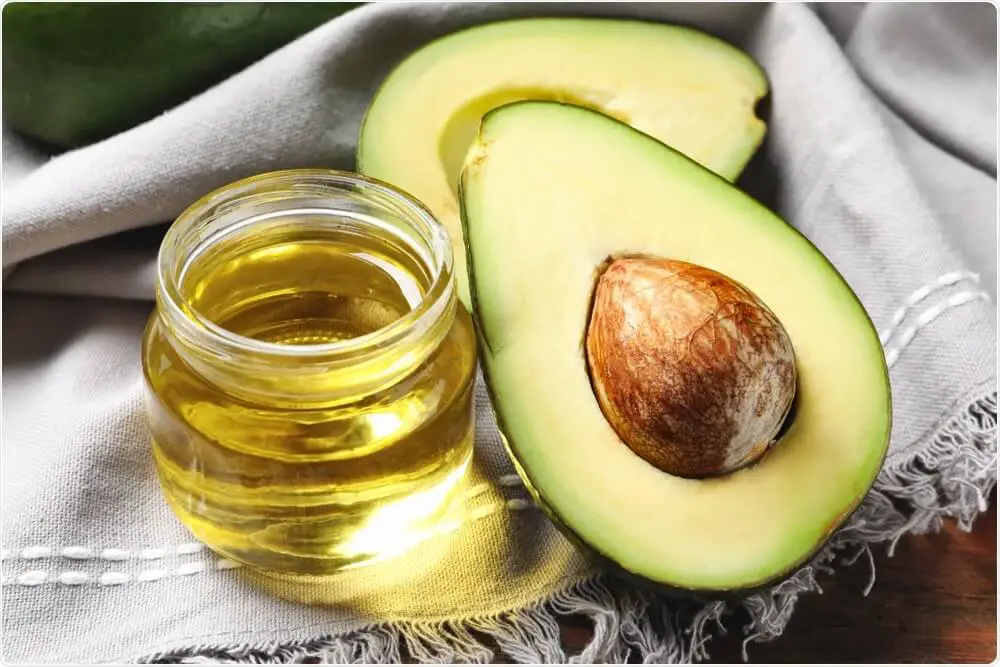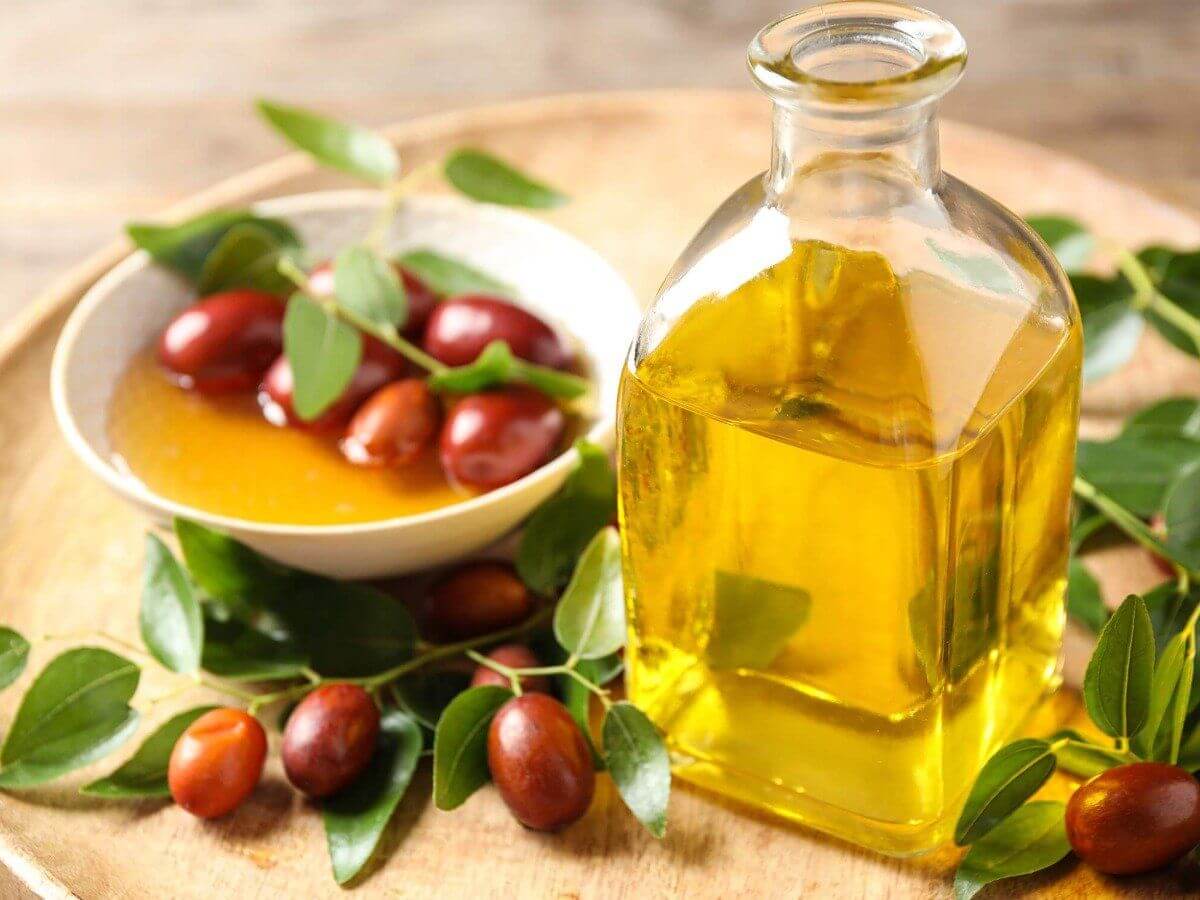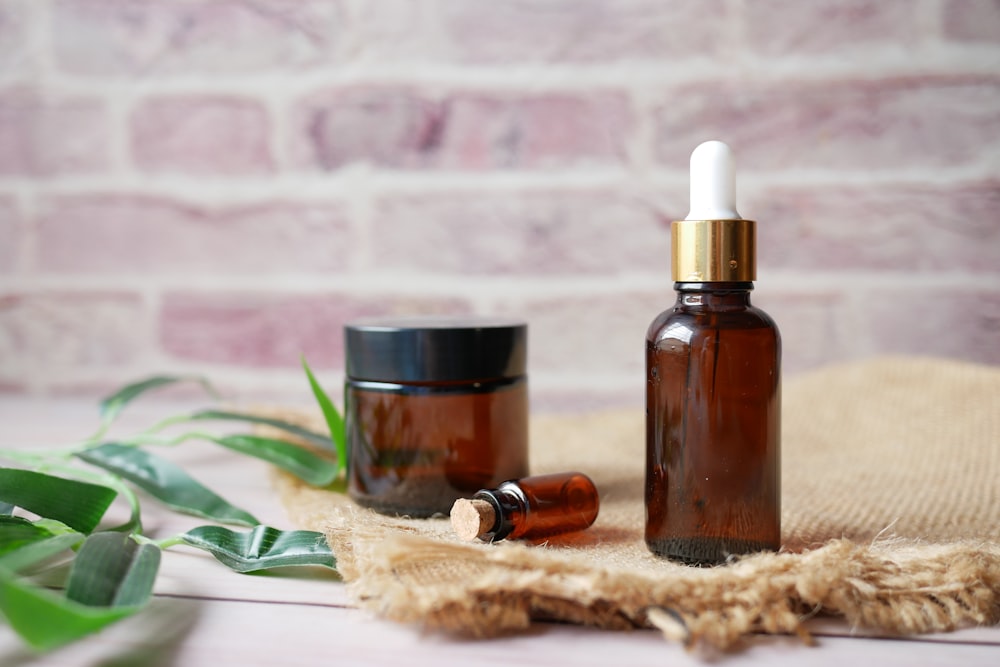
Perhaps you have heard of these oils being used in beauty products. You might have come across them in online articles or even read about people using these oils for their hair, skin, etc. And if you are wondering which one is better – jojoba oil vs avocado oil – then this article will give you the answer.
Contents
- 1 Jojoba Oil Vs Avocado Oil: Differences
- 1.1 1. Product
- 1.2 2. Absorption
- 1.3 3. Texture And Feel On The Skin
- 1.4 4. Toxicity And Allergenicity
- 1.5 5. Availability And Expense
- 1.6 6. Origin Of The Oil
- 1.7 7. Odor And Taste
- 1.8 8. Uses In The Skin Care Industry
- 1.9 9. Anti-Oxidation And Anti-Rancidity Agents
- 1.10 10. Fatty Acid Composition
- 1.11 11. Moisturizing And Protective Properties
- 2 Jojoba Oil Vs Avocado Oil: Benefits
- 3 Marula Oil Vs Avocado Oil: Which Is Better?
- 4 Jojoba Oil Vs. Avocado Oil – Conclusion
Jojoba Oil Vs Avocado Oil: Differences
Jojoba oil originates from a shrub that looks like a bush and grows in dry climates such as those near the Pacific Ocean. This plant has small yellow flowers which produce a peppercorn-sized fruit that is referred to as a bean. The jojoba beans are cold-pressed to produce jojoba oil. It is often used as an ingredient in beauty products because it has properties that make it rather unique.
Avocado oil comes from the avocado and like us humans, the avocado plant does not grow in dry climates. Rather it needs a climate that is warm and humid, much like the climate tended to by humans. The avocado has a large amount of oil in its flesh, which is what makes avocado soft and juicy.
This oil can be used as oil for cooking or pressed out through cold pressing just as with jojoba oil to extract the properties that are useful for beauty products. There are some differences between jojoba oil and avocado oil. Let us start with their chemical properties. Jojoba oil is composed of esters, whereas avocado oil is mainly made up of triglycerides.
The difference between the two types of oils can be seen when they are analyzed under a microscope. When you look at jojoba oil under the microscope, its molecular structure looks like a box or cage with open junctions. On the other hand, when you look at avocado oil it appears glass-like and smooth in appearance.
This difference is what lies behind why these oils behave so differently in your body and gives each of them a distinctive benefit from the other.
1. Product
Jojoba oil which is a wax ester does not dissolve in water, whereas, avocado oil being a triglyceride can easily mix with water. This difference enables each of these oils to be used in different products and have different purposes.
For example, jojoba oil can be added to creams and lotions to give them a thicker consistency which will remain on the skin until it is washed off. Avocado oil on the other hand will be best suited as an ingredient in soaps and body washes since it mixes better with water allowing the soap or wash to lather more easily.
In addition, jojoba oil can blend well with essential oils which enables it to carry the scents of the essential oil into the skin more easily.
Related Video – How To Make Avocado Cream For Skin
2. Absorption
The wax ester chain that makes up jojoba oil is not absorbed by the body, whereas avocado oil being a triglyceride can be easily absorbed. As you probably already know, when fat is stored in your body, it is stored as a triglyceride.
In other words, your body does not absorb jojoba oil but instead stores it in the lymphatic system where it can remain for months or even years without being used or needed by the body.
Avocado oil on the other hand is a very nourishing and moisturizing oil that tends to be quickly absorbed by the skin and hair. It is because of this difference in absorption rates that avocado oil has been referred to as being a carrier oil since it can carry other oils with it as it gets absorbed into your skin or hair.
3. Texture And Feel On The Skin
Jojoba oil absorbs easily into the skin leaving it soft and silky. However, this is not the case with avocado oil which has a rather greasy feel that is noticeable when you use it on your skin or hair.
This difference means that jojoba oil can be used in creams and lotions without leaving the area where it is applied feeling oily or greasy, but avocado oil on the other hand will not be suitable in creams and lotions because of this greasy feel.
4. Toxicity And Allergenicity
The wax ester in jojoba oil is non-toxic to humans, whereas avocado oil being a triglyceride has been known to be toxic to humans and other mammals including dogs, cats, and horses.
This means that jojoba oil will not need to be labeled as poisonous if used as an ingredient in beauty products such as shampoos or body washes whereas avocado oil will need warning labels on any beauty product that it is used in.
Another reason why jojoba oil does not need warning labels is that it has very low allergenic properties. Again this is different with avocado oil which has been known to be an allergen to many people, especially those that are allergic to poison ivy or oak.
5. Availability And Expense
Jojoba oil can only be obtained by cold pressing the jojoba seeds, whereas avocado oil can be obtained by cold pressing or using hexane solvent extraction.
The expense of jojoba oil is another reason why it tends to be more expensive than avocado oil. It takes about 100 pounds of jojoba seeds to make only one 15ml bottle of jojoba oil whereas it takes about 500 pounds of avocados to make a single liter of avocado oil.
In addition, jojoba oil is not very abundant, whereas avocado oil is very abundant and hence it tends to be cheaper than jojoba oil.
6. Origin Of The Oil
Avocado oil was originally from Mexico where the fruit has been used for centuries by the natives to improve the appearance of their skin, hair, and nails. On the other hand, jojoba oil comes from a shrub that is native to southwest America and northwestern Mexico. Jojoba oil has only been used for about 50 years as an ingredient in beauty products whereas avocado oil has been used for centuries.
7. Odor And Taste
Avocado oil has a creamy and buttery taste and smell due to its high monounsaturated fatty acid content. On the other hand, jojoba oil is virtually odorless and tasteless. This makes avocado oil perfect for use in foods such as salad dressings, sauces, etc., whereas jojoba oil is not suitable for cooking because it is too “heavy” and would not be a suitable substitute for other cooking oils or butter.
8. Uses In The Skin Care Industry
Jojoba oil is very well known as a carrier oil because of its load-carrying capacity which makes it perfect for diluting pure essential oils. It can be used in creams, lotions, balms, and massages oils due to its rich texture.
Avocado oil on the other hand is used in lotions, creams, and lip balms because of its high vitamin E content that inhibits collagen degradation that leads to wrinkles.
However, it can be tricky to use avocado oil as a carrier oil since it has a greasy feel that makes it unsuitable to use in skincare products. It is best used when added to other carrier oils such as almond, grape seed, or sesame oil at a ratio of 1 tbsp avocado oil to 3-4 tbsp of another carrier oil.
9. Anti-Oxidation And Anti-Rancidity Agents
Avocado oil is full of anti-oxidants and does not need to spend as much time in a freezer as other oils because it has high antioxidant properties, which means that it can be stored for longer periods.
Jojoba oil on the other hand needs to spend more time in the freezer or refrigerator to prevent it from becoming rancid due to its wax ester content.
10. Fatty Acid Composition
Avocado oil has a relatively high percentage of oleic acid at about 51% whereas jojoba oil is made up of about 20-30% oleic acid as well as between 40-60% linoleic acid.
This makes jojoba oil very similar to the sebum found on our skin, which is why it is so similar to our skin. It is because of this similarity that jojoba oil makes the perfect moisturizer for dry, flaky, and itchy skin because it can penetrate deep into the pores to moisturize dry patches.
11. Moisturizing And Protective Properties
The composition of jojoba oil is very much like sebum and since it can be absorbed easily by our skin, it is perfect to use as a moisturizer for dry and flaky skin.
One drawback is that if you have acne-prone or oily skin then jojoba oil would not be the best option because it is very similar to sebum in its properties.
Hence, people with oily faces should stay away from jojoba oil and try avocado oil instead which is also good for the skin but not as much as jojoba oil.
Jojoba Oil Vs Avocado Oil: Benefits
Jojoba Oil Benefits
Jojoba oil is a vegetable oil that comes from the seed of the jojoba plant. The plant’s Latin name is Simmondsia Chinensis, and it grows in parts of North America, especially in Arizona and California. It has been used for hundreds of years by Native American tribes.
Let’s look at the benefits of jojoba oil:
1. Antioxidant Properties
Jojoba oil contains large amounts of vitamin E which makes it an antioxidant powerhouse that can help neutralize free radicals in your skin, reduce wrinkles and fine lines, prevent premature aging, protect against sun damage, soothe inflammation and irritation caused by acne, etc.

2. Moisturizing Properties
You can use jojoba oil as a moisturizer by itself or mix it with other carrier oils to improve their penetration, consistency, and results.
3. Anti-inflammatory Properties
In addition to containing antioxidants, jojoba oil has anti-inflammatory properties too which help soothe irritated skin of people with conditions such as psoriasis, dermatitis, etc.
4. Promotes Hair Growth
Jojoba oil contains essential nutrients that can help reduce hair damage and promote growth because it nourishes the roots of your hair from within, making them stronger and thicker over time. Jojoba oil is also responsible for making those locks shiny because it’s a great conditioner.
5. Natural SPF
This oil does not contain SPF so you’ll need to add an external sunscreen when going out in the sun. But jojoba oil’s anti-inflammatory properties and antioxidant content can help prevent and soothe sunburns and rashes caused by excessive exposure to sunlight.
Avocado Oil Benefits
Avocado oil is pressed from the fruit of an avocado. This oil contains a lot of monounsaturated fatty acids, such as oleic acid and potassium which can increase collagen production in the skin. It also has vitamins A, D, and E which help to improve skin tone and elasticity.
1. Rich In Vitamin E
Avocado oil is one of the richest sources of vitamin E which is an antioxidant that can help protect skin against free radicals.

2. Contains Oleic Acid
This oil is rich in oleic acid, a monounsaturated fatty acid with anti-inflammatory properties. This makes it great for soothing irritated skin and reducing inflammation caused by acne.
3. Contains Palmitoleic Acid
Palmitoleic acid is another monounsaturated fatty acid that your skin can absorb easily, making avocado oil perfect for moisturizing dry skin and replenishing the protective barrier of the skin that keeps moisture in or out.
4. Anti-Aging Properties
Another benefit of avocado oil is that it contains a plant sterol called beta-sitosterol, compounds of which have been found to help inhibit the production of excess sebum that causes acne and signs of premature aging.
5. Contains Lutein And Zeaxanthin
Avocado oil is also rich in lutein and zeaxanthin, two compounds that are important for healthy eyes.
Marula Oil Vs Avocado Oil: Which Is Better?
Although both these oils are beneficial to the skin, avocado oil has more benefits than marula oil.
For instance, avocado oil can act as a natural SPF for your skin whereas marula oil does not have any SPF so you’ll need to use an external sunscreen when going out in the sun. Also, avocado oil is rich in antioxidants, vitamin E, and oleic acid which is great for rejuvenating skin cells.
On the other hand, marula oil is rich in antioxidants too but it’s not as rich in vitamin E and oleic acid when compared to avocado oil.
Avocado oil also contains beta-sitosterol which has anti-inflammatory properties that can reduce acne and soothe irritated skin. However, marula oil’s main benefit is that it contains antioxidants which are responsible for protecting your skin against free radicals in the environment.
When it comes to moisturizing your skin, avocado oil has more benefits than marula oil because of its vitamin E content. As far as anti-aging properties are concerned, marula oil wins because of its antioxidant content.
But when it comes to rejuvenating your skin, avocado oil is the winner with oleic acid and beta-sitosterol. On the other hand, marula oil has antioxidants that can protect your skin against free radicals in the environment. So if you’re looking for a moisture
Jojoba Oil Vs. Avocado Oil – Conclusion
Jojoba oil and Avocado oil both have amazing benefits for our skin as well as hair, but the one that stands out more than the other is jojoba oil.
Jojoba oil is very similar to sebum which means it can be easily absorbed by the pores of our skin whereas avocado oil has a greasy feel which makes it unsuitable to be used by itself, but when mixed with other carrier oils such as grapeseed or almond oil which are lighter than avocado oil then it makes your skin feel smooth and soft.
Both these oils are beneficial for the skin, however, avocado oil has more benefits than marula oil.
So if you’re looking for a moisturizer or an anti-aging product, it’s better to go with avocado oil because it contains vitamin E which is great for rejuvenating skin cells, and beta-sitosterol which can soothe irritated skin. As far as moisturizing your skin goes, avocado oil’s vitamin E content is what gives it the edge over jojoba oil.








